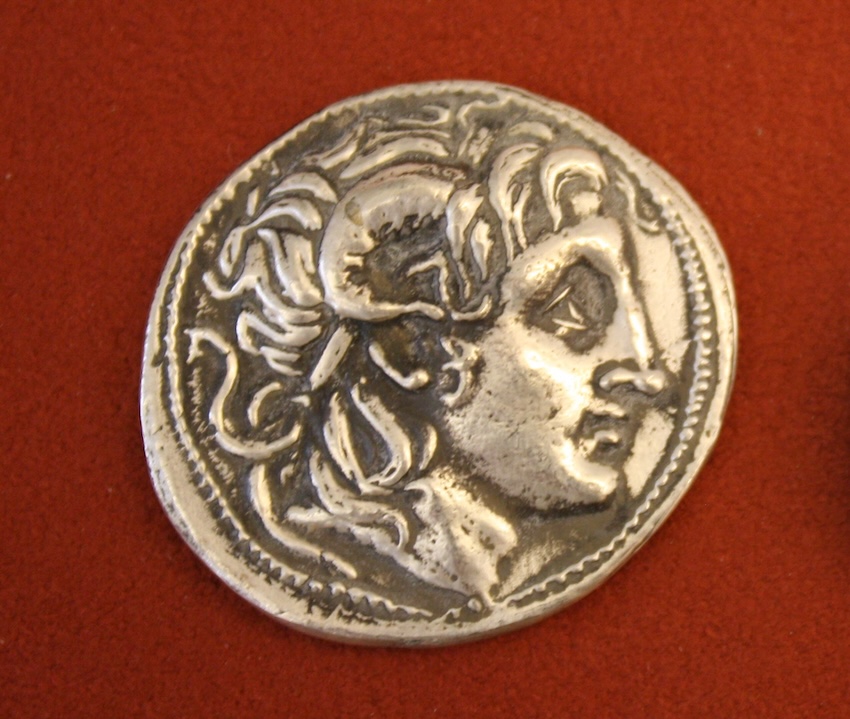
The Old Testament has traditionally been thought to have evolved in fits and starts over centuries, usually said to be from around the tenth to the third century, under the influence of Canaanite, Egyptian and Mesopotamian cultures.
One problem with that conventional view is that there is no material evidence for it. Prior to the third century we have no record of any of the biblical texts nor even for most of the major events that the Bible talks about. [The only exception is the biblical account of the later historical period involving the defeats of the northern and southern kingdoms at the hands of Assyria and Babylon.]
The advantage of the Hellenistic era hypothesis for the “OT” is that it explains
- all of the cultural influences we find in the Bible — the Canaanite/Ugaritic, Egyptian, Mesopotamian…
and also explains
- why we would not expect to find any earlier evidence for either the biblical texts themselves or for the major events they write about.
[The traditional hypothesis explains the lack of evidence for any biblical writings before 300 BCE by assuming the stories were passed on orally or in disparate texts that did not survive. In other words, the traditional hypothesis must speculate on why it does not have the evidence for its model of how the texts came to us. That’s fine, but if there is a simpler explanation that does not require trying to explain a lack of supporting evidence, then we might prefer that one.]
In this context, notice this observation from a conference paper by Jonathan Ben-Dov (not that I suspect Ben-Dov himself has anything to do with the Hellenistic era hypothesis):
As argued above, the metaphor of influence dictates that the source culture remains unaffected by the act of the contact. Like a candle, which can light other candles without diminishing its own flame, so the great source culture is not changed by the nation which received its cultural capital. . . .
This image, however, is not necessarily true. I would like to suggest an example from the field of Hellenism, which is close in its geographical scope and not too far away in time. People often talk of ʻHellenistic Influenceʼ on Judea, Syria or Egypt. However, the very essence of Hellenism is its being an amalgam of Greek culture with the rich and ancient cultures of the East. The Hellenistic kingdoms in Syria and Egypt were by no means Greek; they combined Greek cultural elements with the ancient traditions of the hosting countries. Hellenism was a cultural entity in constant progression.
Ben-Dov, Jonathan. “The Inadequacy of the Term ʻInfluenceʼ in Biblical Studies.” Tel -Aviv University,. Accessed February 21, 2024.

That is also the essence of what the Hellenistic era hypothesis for the Primary History (Genesis to 2 Kings) in particular is all about. [It explains why our biblical literature is not exclusively and distinctively Syrian-Mesopotamian nor exclusively and distinctively Greek. It is a blend of both. That’s Hellenism.]
[The Old Testament is often said to be unique in various ways (ideologically and as literature) in pre-Hellenistic “Near Eastern” culture. But it is not so unique or entirely revolutionary if we think of it in a Hellenistic context. In this setting a ready explanation for its “uniqueness”, its distinctive features, come to the fore. It is a blend of Judean/Samarian and Greek.]
The Pentateuch and Primary History are as unique as Hellenistic era Egypt and Hellenistic era Syria. None is “Greek”. Nor are any of them traditional “Egyptian” or traditional “Syrian”. They are each distinctive culturesk that have been created by the Egyptians and Syrians themselves. Ditto for the Judeans and Samaritans, I suggest. The Pentateuch is not Greek, but nor is it a product of the pre-Hellenistic Syrian Yahwist cult. Rather, what we find in the Pentateuch are many echoes of Greek literature and ideologies and many references to the Yahtwist ideas found throughout Syria-Canaan area.
The main body of the above post was originally posted on another forum (21st Feb). Passages in square brackets are additions I have made to that original post.
All posts in this series are archived at Dating Biblical Texts
